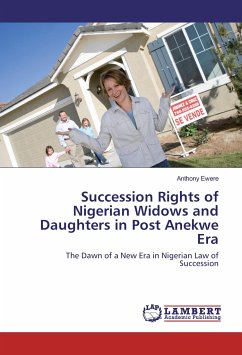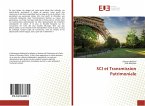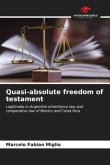Hope for Nigerian widows and daughters as the Supreme Court radically changed its conservative policy on discriminatory customary law rules of succession. The Supreme Court's decisions in Anekwe v. Nweke and Ukeje v. Ukeje are a landmark, having finally turned the tide against discriminatory customary law rules of succession in Nigeria. In addition to constitutional provisions and global trend against discrimination, the cases mark the beginning of the end of discriminatory customary law rules of succession from judicial perspective. Widows and daughters now have formidable legal authorities for ventilating their succession rights to real property upon intestacy. They can also challenge other discriminatory customary law rules on the ground that the rules are unconstitutional, repugnant to natural justice, equity and good conscience, or for being inconsistent with practical realities in present-day society.








